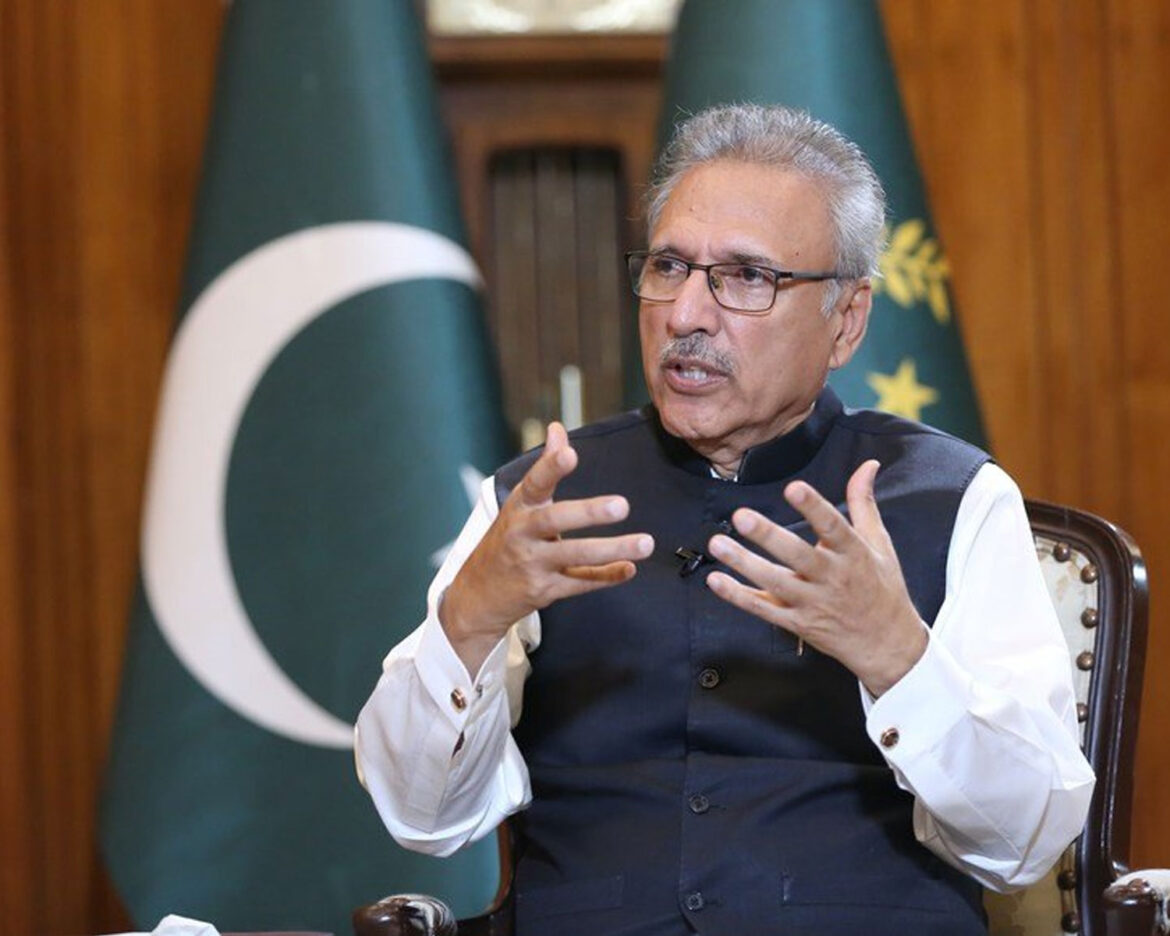President Arif Alvi has sent the Code of Criminal Procedure (CrPC) Amendment Bill 2023 back to parliament, raising objections over certain amendments that had been proposed in the bill. The amendments in question specifically target acts deemed insulting to Sahaba-e-Karam, revered figures in Islamic history.
Having received approval from both the National Assembly and Senate, the bill awaited the president’s final stamp of approval. However, President Alvi’s objections centered around two key amendments in Section 298A of the CrPC Amendment Bill, while he did not voice any reservations about the heightened penalties for the offense.
The contentious amendments sought to categorize the offense as non-bailable and to empower the police with the authority to make arrests without the need for a warrant. The president, invoking constitutional provisions including Articles 8, 9, 10, 10A, and 14, contended that conferring such sweeping powers upon the police was a violation of their jurisdiction.
President Alvi went on to caution that such unchecked powers could potentially be exploited, leading to wrongful arrests of innocent citizens. Urging the parliament to address this issue promptly, he expressed his concerns regarding the potential for misuse and overreach by law enforcement agencies.
The CrPC Amendment Bill, aimed at strengthening the penalties for acts considered disrespectful to Sahaba-e-Karam, had already secured the endorsement of the National Assembly on January 17, followed by the Senate’s approval on August 7. The proposed legislation recommended a minimum sentence of ten years along with a fine of Rs1 million. In cases of more severe contempt, the bill suggested either life imprisonment or a 14-year jail term.
Interestingly, just a day prior to his objection to the CrPC Amendment Bill, President Alvi stirred controversy by asserting that he had not signed two other bills – the Official Secrets (Amendment) Bill and the Pakistan Army (Amendment) Bill. He attributed the confusion to the actions of his staff, asserting that they had failed to return the bills to parliament within the stipulated 10-day timeframe as mandated by Article 75 of the Constitution.
In a strongly-worded social media post, President Alvi vehemently denied having given his assent to the two bills and accused his staff of deceiving him and undermining his authority. The incident highlighted procedural discrepancies within the presidential office and raised questions about the thoroughness of the legislative process. As the situation unfolds, the president’s objections to the CrPC Amendment Bill mark a pivotal moment in the ongoing dialogue surrounding freedom of expression, religious sensitivity, and the scope of law enforcement powers in the country.



